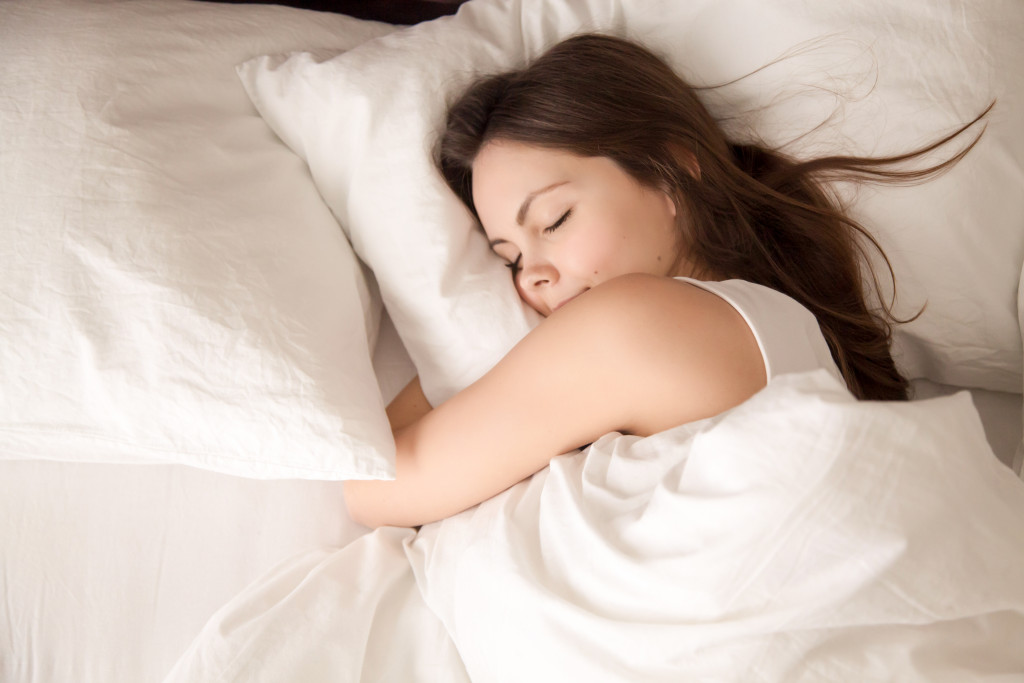If there is one thing that all humans need to do besides breathing and eating, it is definitely sleeping. Everyone needs to rest and recharge, especially after a long day of studying, working, or doing whatever you may do. However, sleeping doesn’t only ensure you are energized enough to get on with your day without fail. It also keeps you away from major health risks.
How Sleep and Health Are Related
This is because sleep plays a vital role in your physical and mental health. It is involved in the healing and repair of your heart and blood vessels, for as you sleep, your heart rate, breathing rate, and blood pressure rise and fall. This process is important when it comes to cardiovascular health and, ergo, your overall health. In addition to this, as lack can cause physical problems due to a weakened immune system, it can also cause mental health problems such as anxiety and depression. In fact, 50% to 80% of psychiatric patients in the US also have chronic sleep problems.
Despite how important sleep is to your overall health, sometimes, lack of sleep cannot be avoided when working and hitting deadlines. Unfortunately, ongoing sleep deficiency puts you at a greater risk of heart disease, high blood pressure, diabetes, kidney disease, and stroke in the long run. It can also contribute to abnormal hormonal changes that lead to excessive weight gain and skin problems.
If you are concerned about your health but are having a hard time trying to sleep better, there are several solutions you can try. One popular option is investing in good mattresses, as it can improve your sleep quality and even reduce stress. Aside from this, there are more things you can do to ensure proper sleep.

What You Can Do to Sleep Better
1. Create a consistent sleep schedule—First things first, you need to have a proper sleep schedule. This means you must strive to have a consistent sleep and wake up time. According to some research, make sure those times are at least seven hours apart, for that is the proper amount needed for adults. It would help if you did this so that your body’s circadian rhythm, the natural and internal process that regulates the sleep-wake cycle, maintains a regular pattern as this is proven to aid in long-term sleep quality. One study has even noted that people with irregular sleep patterns are most likely to report poor sleep. You can maintain a consistent sleep schedule by simply scheduling work for certain times of the night only and setting alarms in the morning.
2. Limit your caffeine consumption—Yes, caffeine! Although it helps 90% of Americans get up and start the day, it can also keep you from hitting the hay. This is especially if you take in any caffeine six hours before your set bedtime. Although a single dose can enhance focus and energy, it can also stimulate your nervous system. It may even stop your body from naturally relaxing at night if taken later than 3 to 4 PM. However, if you are really craving some coffee in the late afternoon to help you finish your work, it is best to stick with decaffeinated coffee or any other caffeine substitute.
3. Stop taking long or irregular daytime naps—Although it sometimes cannot be avoided, especially if you have some free time between a long day of work, sleeping during the day can confuse your internal clock. This, therefore, causes you to struggle to sleep at night. And these long naps may prove counterproductive at times as well, with some participants in a study ending up even sleepier after taking a nap. This does not mean you should throw your daytime naps completely out the window, though. A simple 30-minute nap can actually help enhance brain function—all you need to do is set the alarm.
All things considered, sleep keeps you energized enough to do the things you love and need to do in everyday life. Most importantly, it is vital when it comes to maintaining overall physical and mental health. It lowers the risk of cardiovascular, digestive, and neurological health and lowers the likelihood and/or worsening of mental illness such as anxiety, depression, and panic disorders. Just think about all the medical bills you can save on in the long run. If you think about it, all you really need to do is stay consistent and disciplined so that you can have a better, longer, and more efficient night’s sleep. Catch some zzz’s and turn that alarm on!
